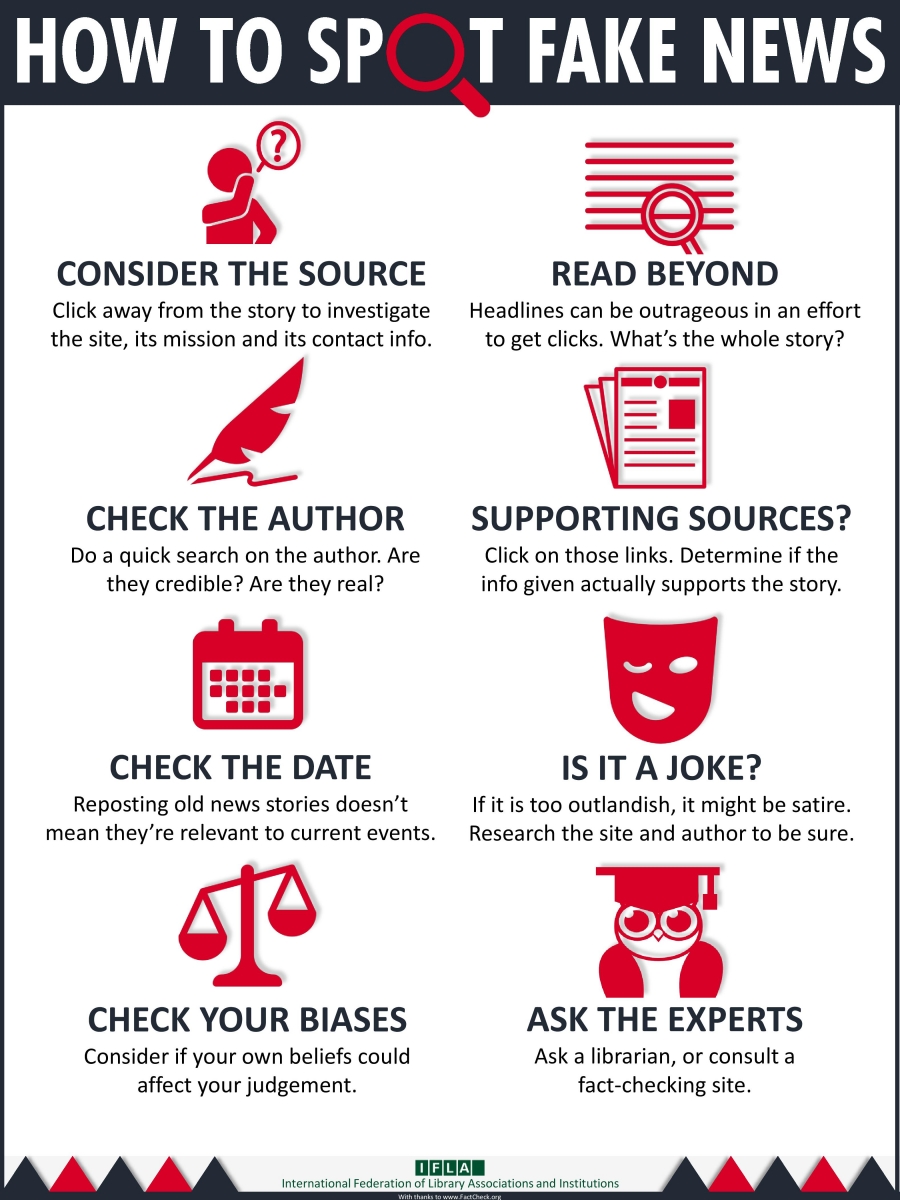The creation of misinformation continues to generate a lot of discussion and it’s no surprise that post-truth is now in the Oxford English Dictionary (and was Word of the Year in 2016). Although many news sources have some inherent bias or political leaning, there are news outlets that are more credible than others. The sites below can help you be more critical of the information and news sources you encounter.
Verifying news stories and images
- FactCheck.org: monitors the accuracy of political stories, mainly from the U.S.
- PolitiFact: verifies political news stories.
- Snopes: fact-checks Internet rumours and stories. This will determine whether that post your cousin shared on Facebook re: gun violence in America has any merit.
- Photo verification tools (compiled by International Journalists' Network): altered images and videos are also a cause of concern. These sites (along with Google Reverse Image Search) allows you to check images and videos on social media and websites.
Spotting misinformation
- Refer to the ‘About Us’ area on a website to see what it says, and then search online for more information on the story or source. This is referred to as "Lateral Reading" (3:17 minute video).
- Practise "click restraint" (2:19 minute video) and scroll through the list of search results instead of clicking on the top results. Taking the time to scan other headlines and results from multiple news sources allows you to see how (or if) other outlets are reporting on the same story.
Accessing credible news sources
Refer to U of T Libraries' Newspapers guide that provides paywall-free (=free!) access to many national and international newspapers through library databases.

(Source image: IFLA)
Further websites and research on fact-checking and combating misinformation
- Civic Online Reasoning (from Stanford Education Group): produces research reports, lessons, and videos focused on evaluating online content.
- Duke Reporters' Lab Fact-Checking: maintains a database of global fact-checking sites.
- Media Bias/Fact Check: contains a search box to check media bias of news sources.
- Harvard Kennedy School Misinformation Review: publishes timely peer-reviewed and open access research about misinformation.
See other FAQs about